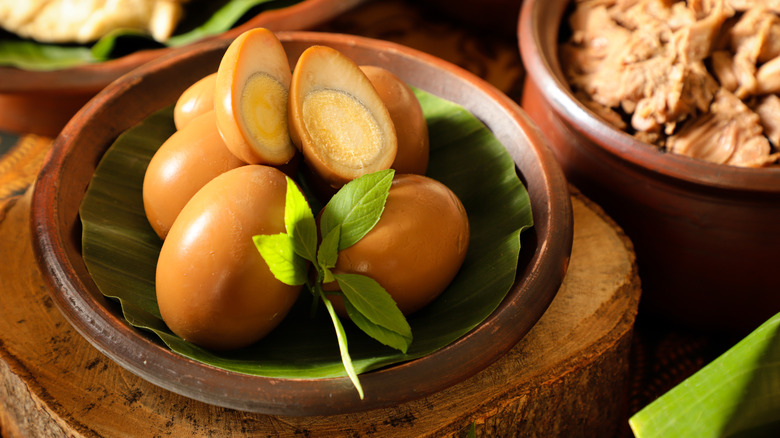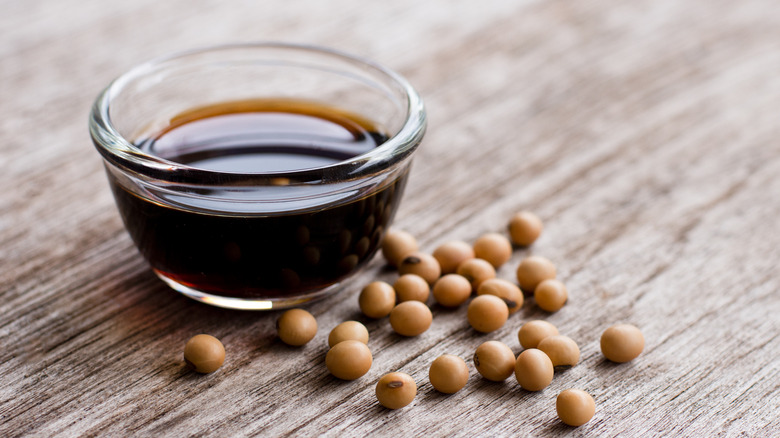The Ingredient That Makes Lu Dan Braised Eggs Unique
Home cooks would be hard-pressed to find a simpler yet more-complete food than hard-boiled eggs. Just one boiled egg packs 6 grams of protein, just 78 calories, and significant amounts of calcium, iron, vitamin A, and vitamin D, says WebMD. But, what happens when plain boiled eggs get a flavor-packed boost?
Introducing: Lu Dan. If you haven't heard of it, "Lu Dan" literally translates to "braised egg" in Taiwanese, per Cooks Illustrated. Lu Dan is a dish made from marinating boiled eggs, and it's a show-stealing addition to any bento box. You could even slice the eggs up as a topping on instant ramen or avocado toast, or halve and fill Lu Dan for an unexpected twist on deviled eggs (via Yummly).
Lu Dan is commonly prepared in Asian households or served as an appetizer at restaurants. To achieve that perfectly jammy Lu Dan yolk, Serves 4 recommends using 65-gram eggs (the typical weight of a standard large egg), simmering them for exactly seven and a half minutes, then shocking them in an ice bath. But, the question we all want answered is: What does Lu Dan actually taste like?
Here's the star ingredient.
Spice it up with soy sauce
Without further ado, the ingredient that makes Lu Dan braised eggs unique is soy sauce. The soy sauce broth that turns boiled eggs into Lu Dan isn't usually used for eggs at all, says Cooks Illustrated. The broth is used for a dish called "lu wei," which typically consists of marinated braised pork, kelp, or tofu, but it brings a saltiness and umami flavor that takes boiled eggs to the next level. Also, Lu Dan varies depending on where you eat it. In northern Taiwan, it's customary for the eggs to be prepared with spices, but in southern Taiwan, you won't find many spices in your Lu Dan. Common simmering spices include cinnamon sticks, star anise, cloves, bay leaves, orange peel, chilis, and Szechuan peppercorns, per Simply Recipes.
This dish is so delicious that many different Asian cultures have their own variations of soy sauce eggs. In Japan, soy sauce eggs (aka "shoyu tamago") are a popular snack, via The Spruce Eats. Similarly to Lu Dan, in shoyu tamago, boiled eggs are simply peeled and steeped in soy sauce. In Korean soy sauce eggs, the eggs are steeped with dried anchovies, garlic, onion, scallions, and sesame oil (via Simply Recipes). There's even a variation called "tea eggs," per The New York Times, which are fittingly just boiled eggs semi-peeled and steeped in soy sauce and tea.

